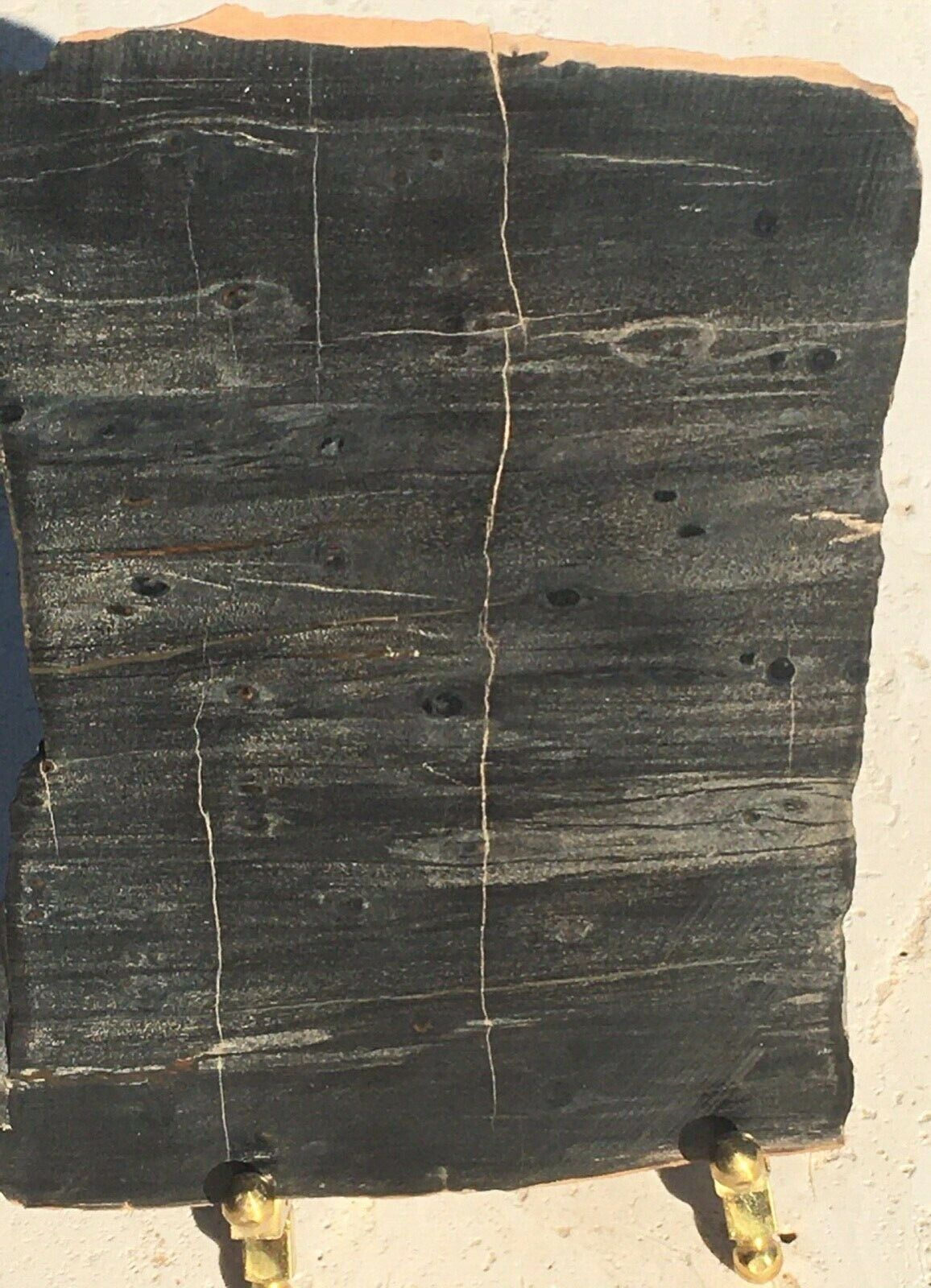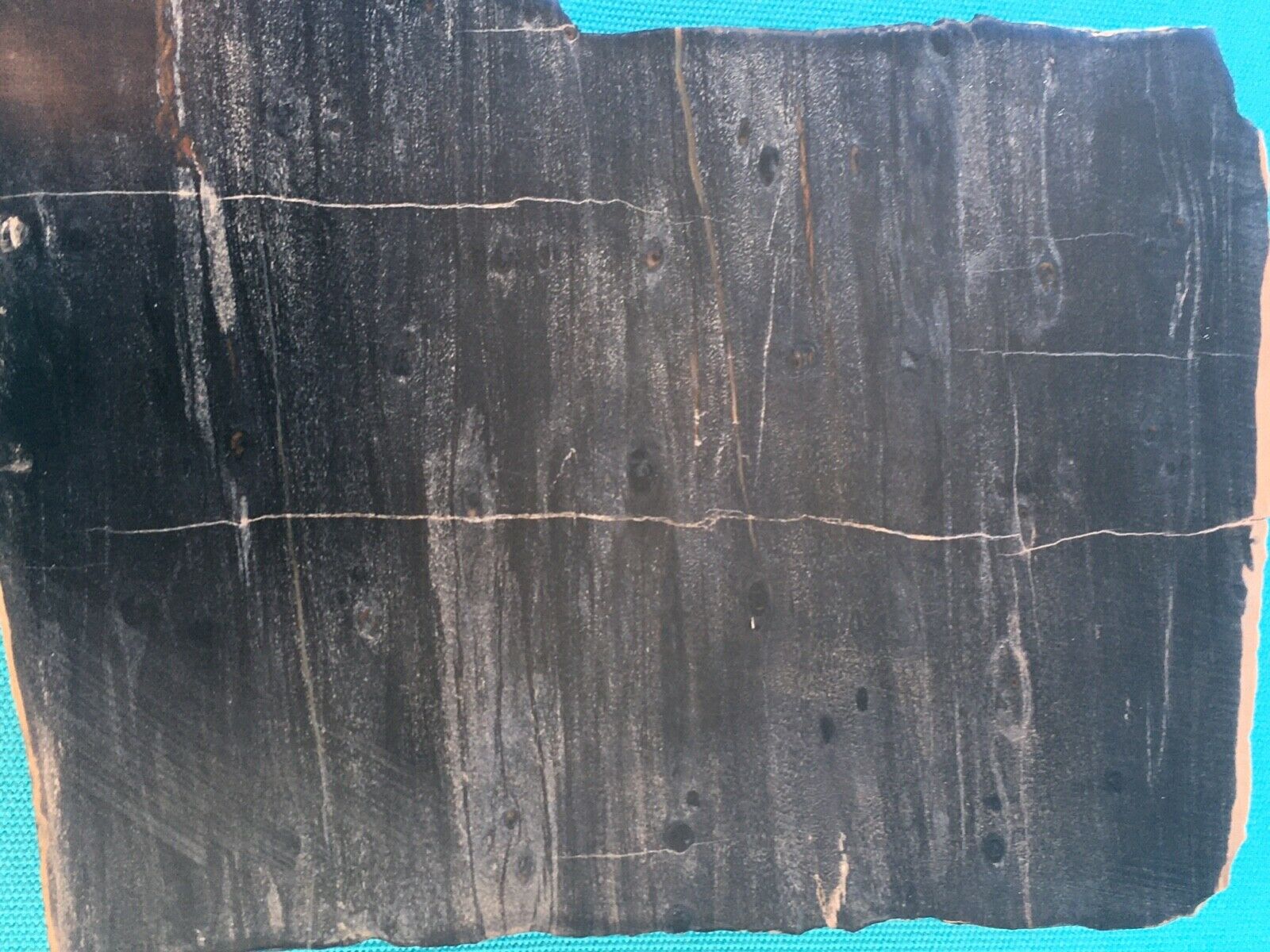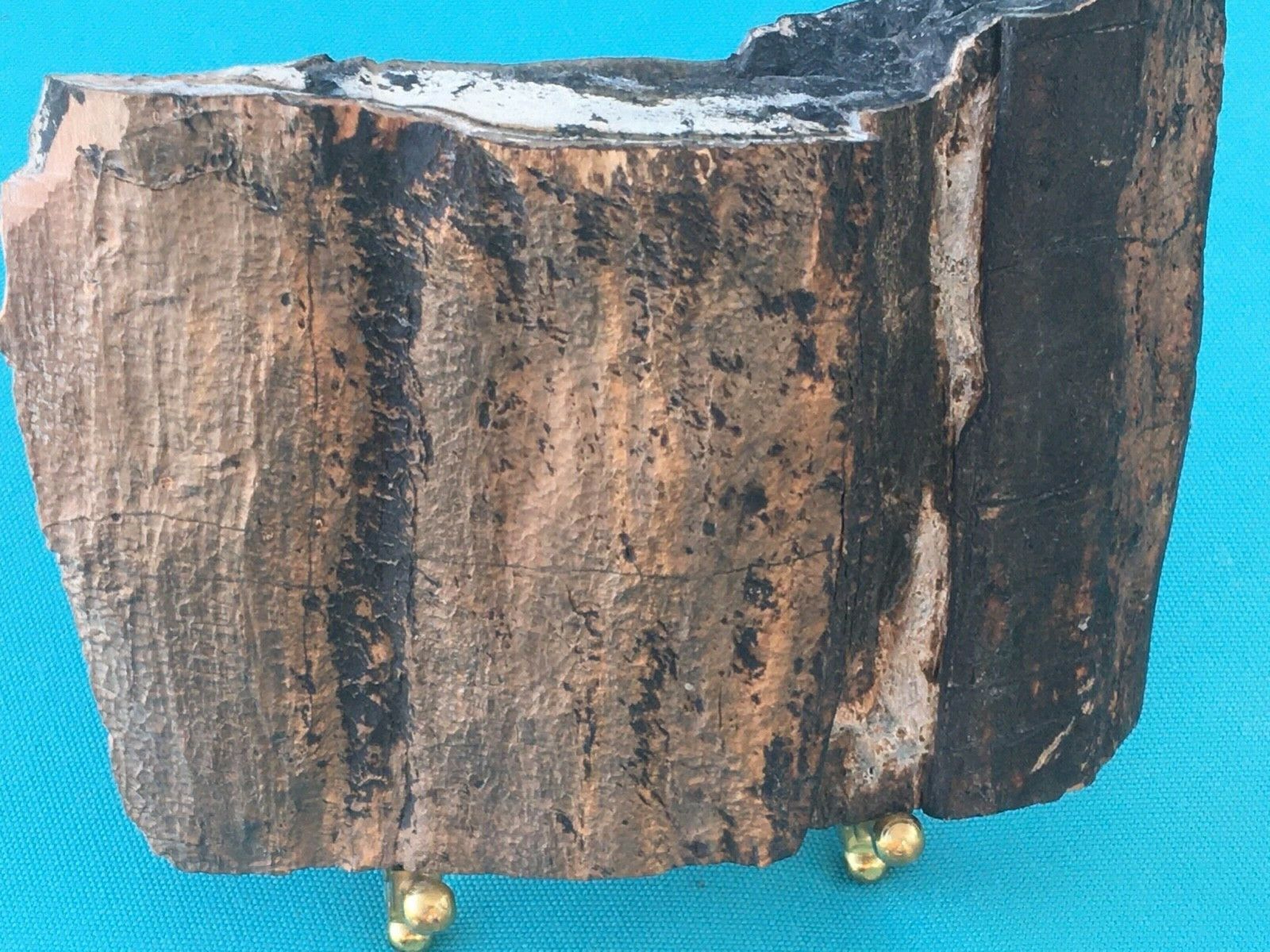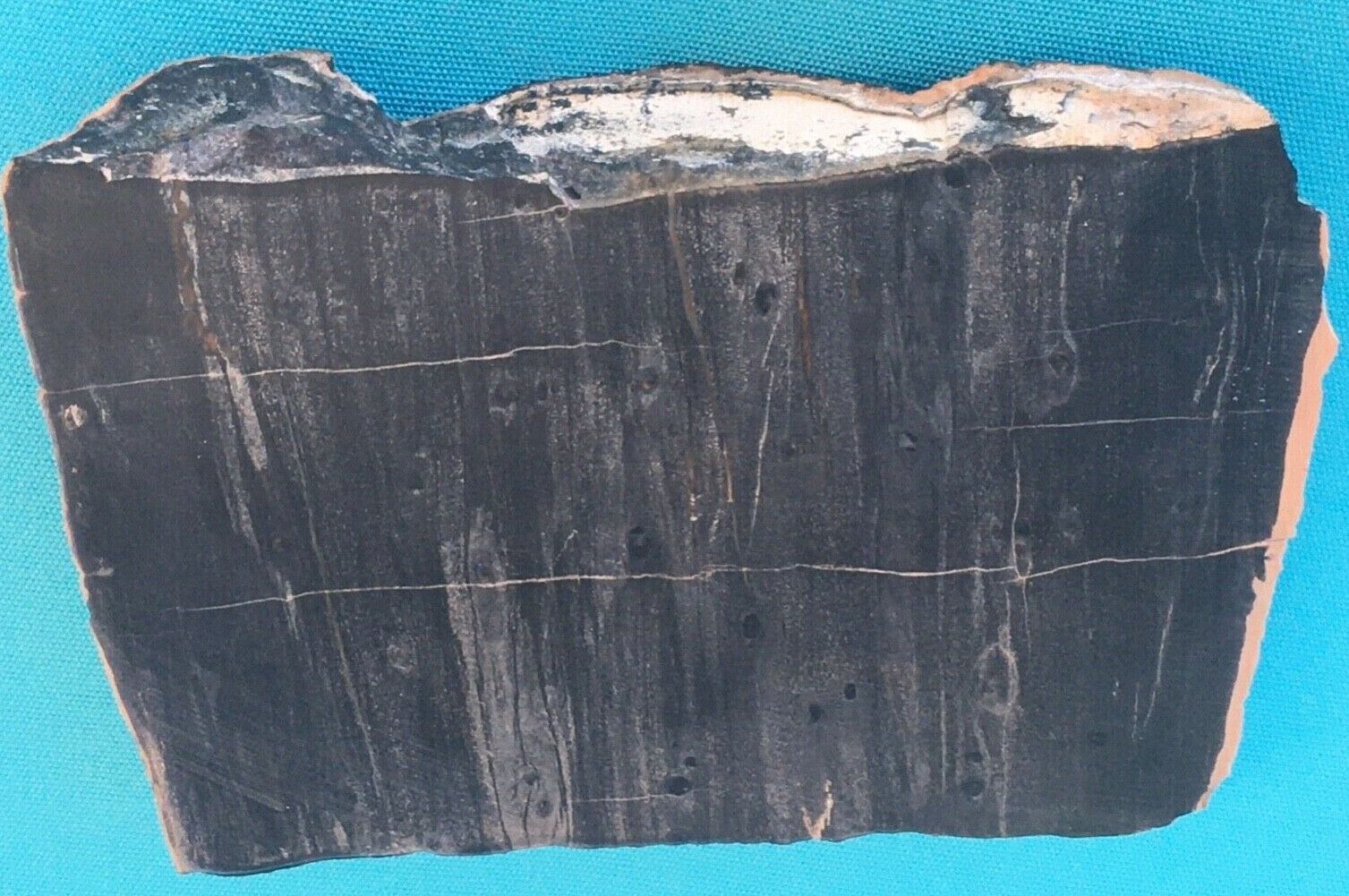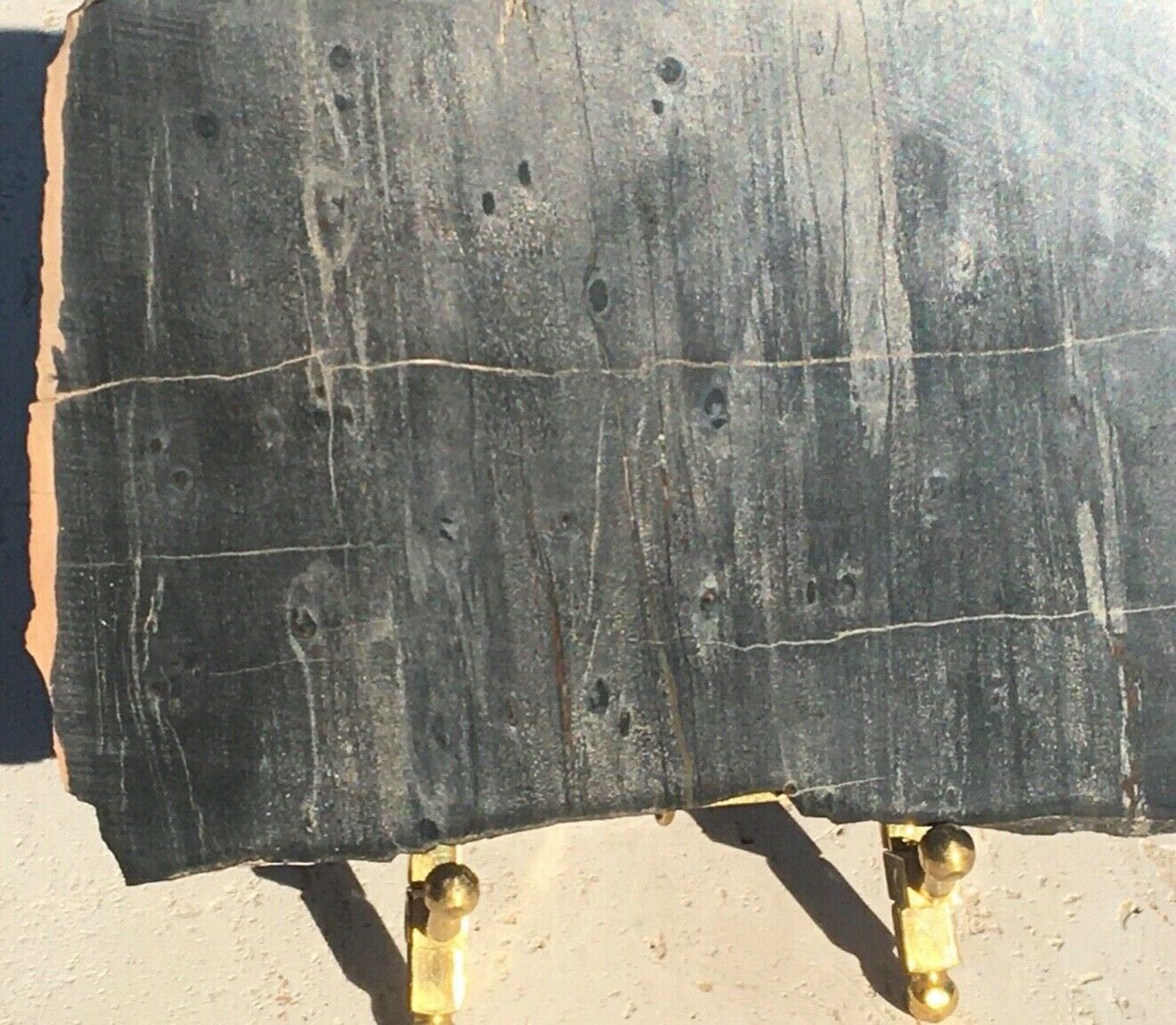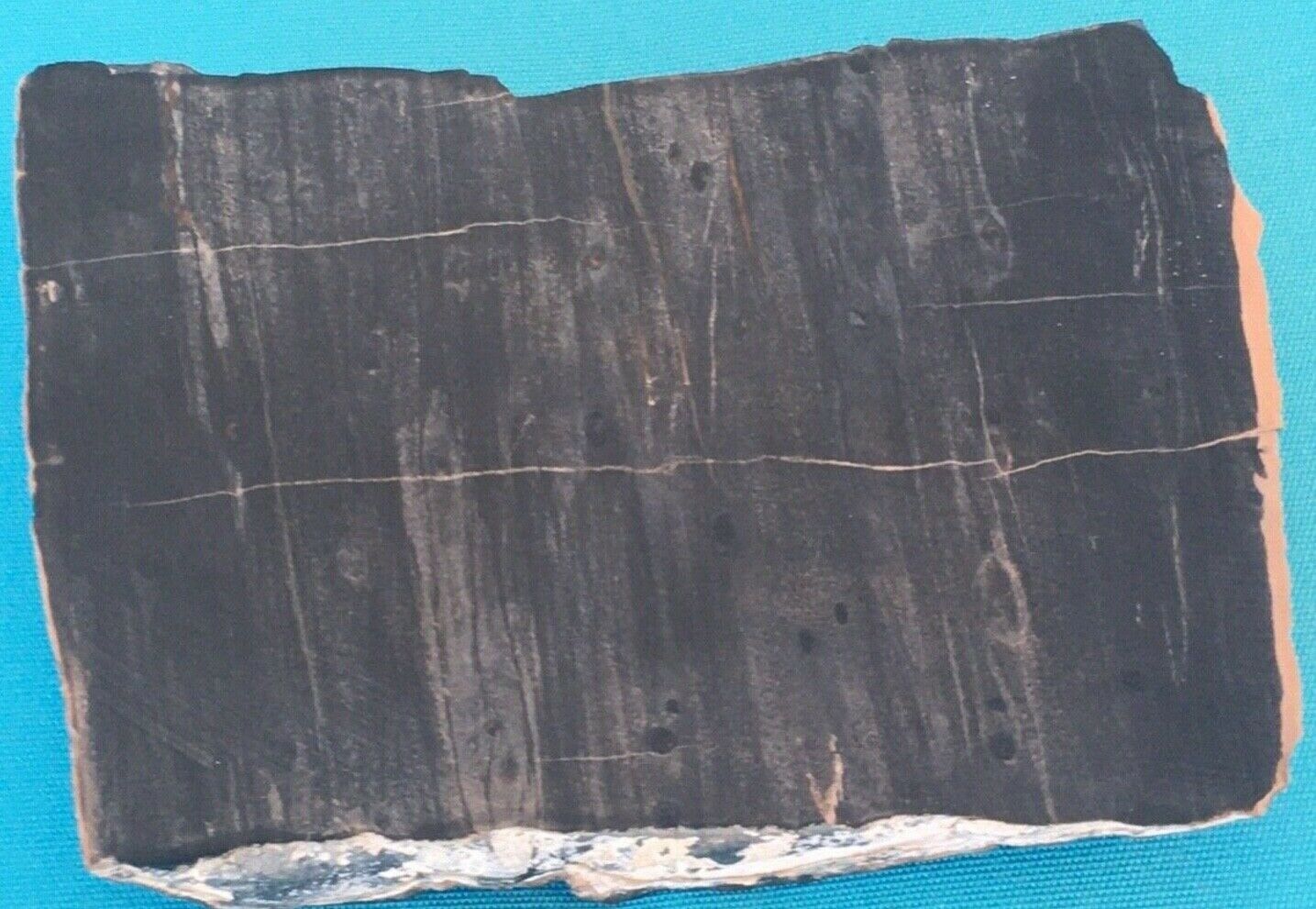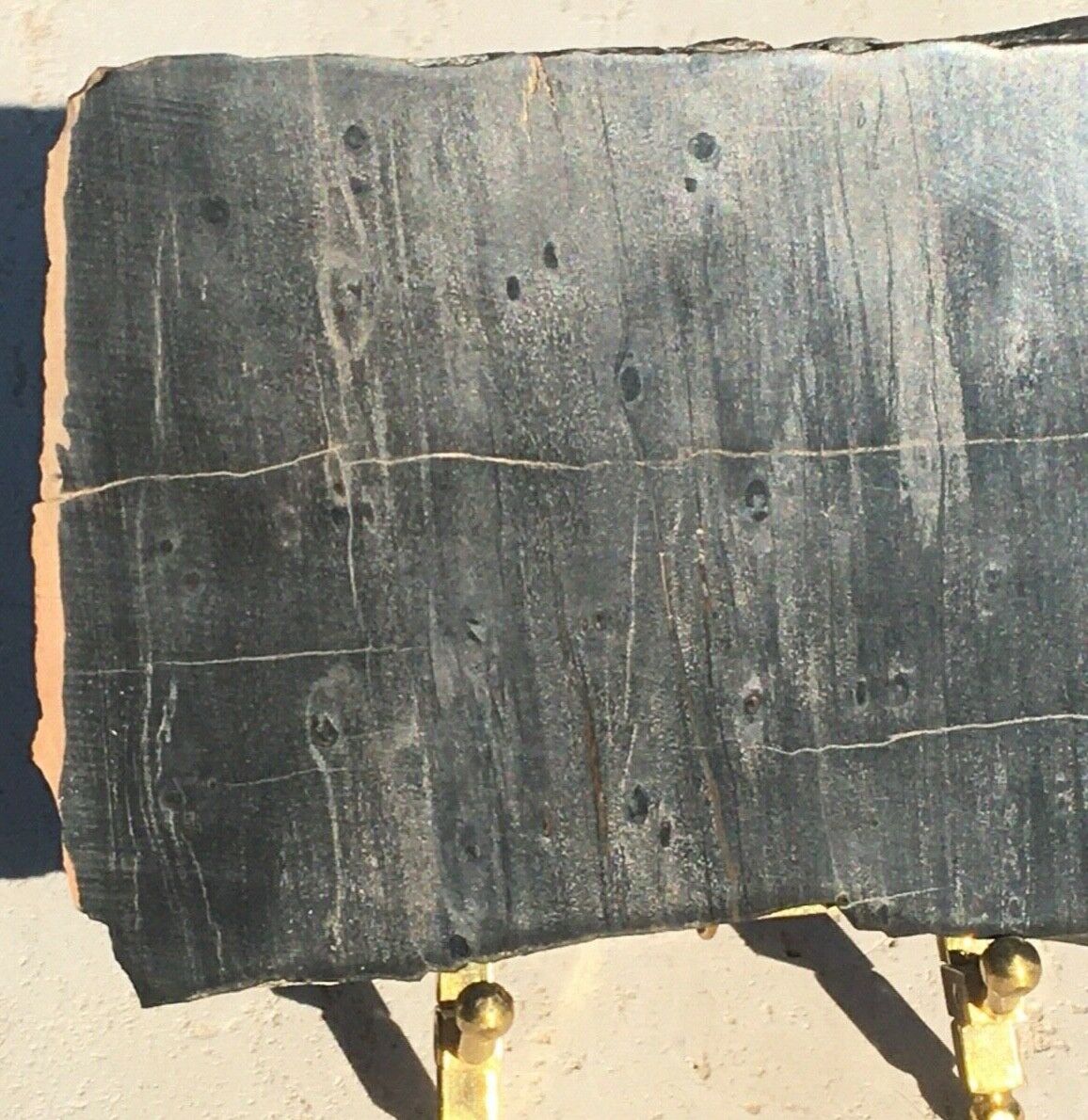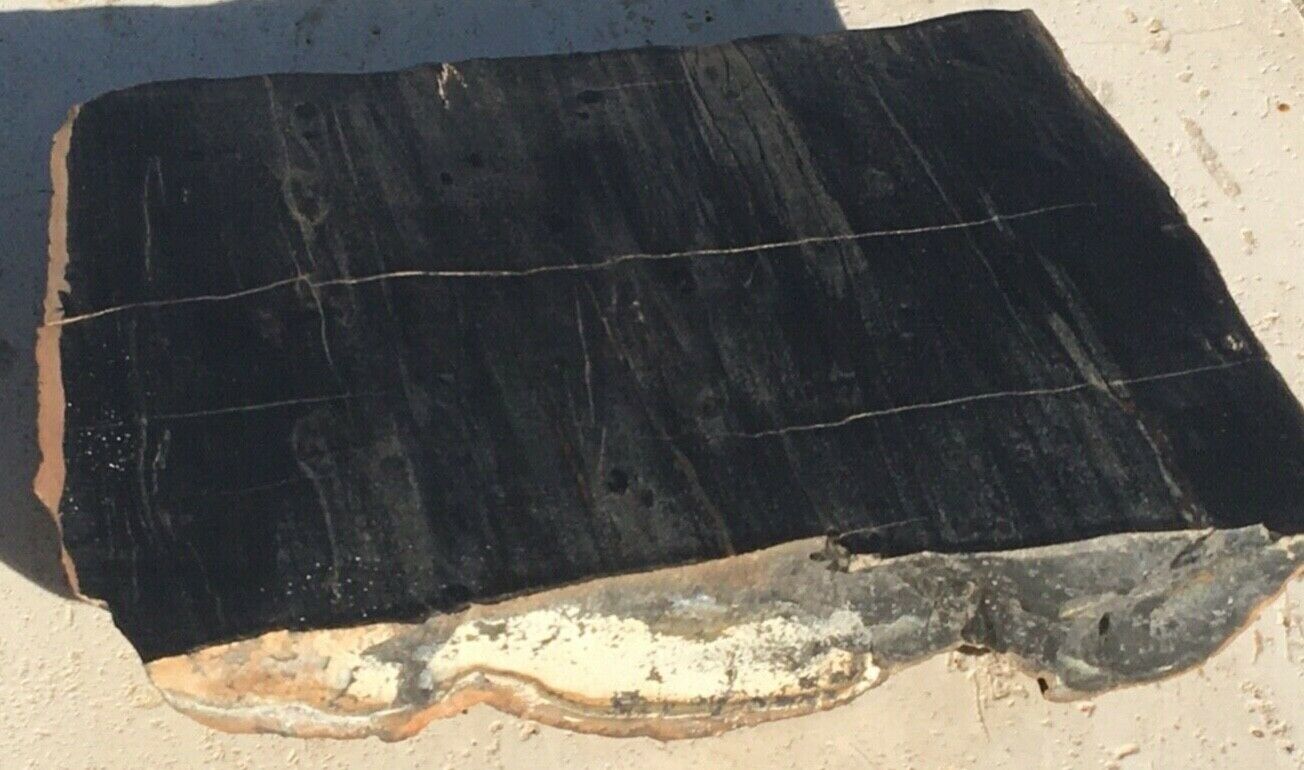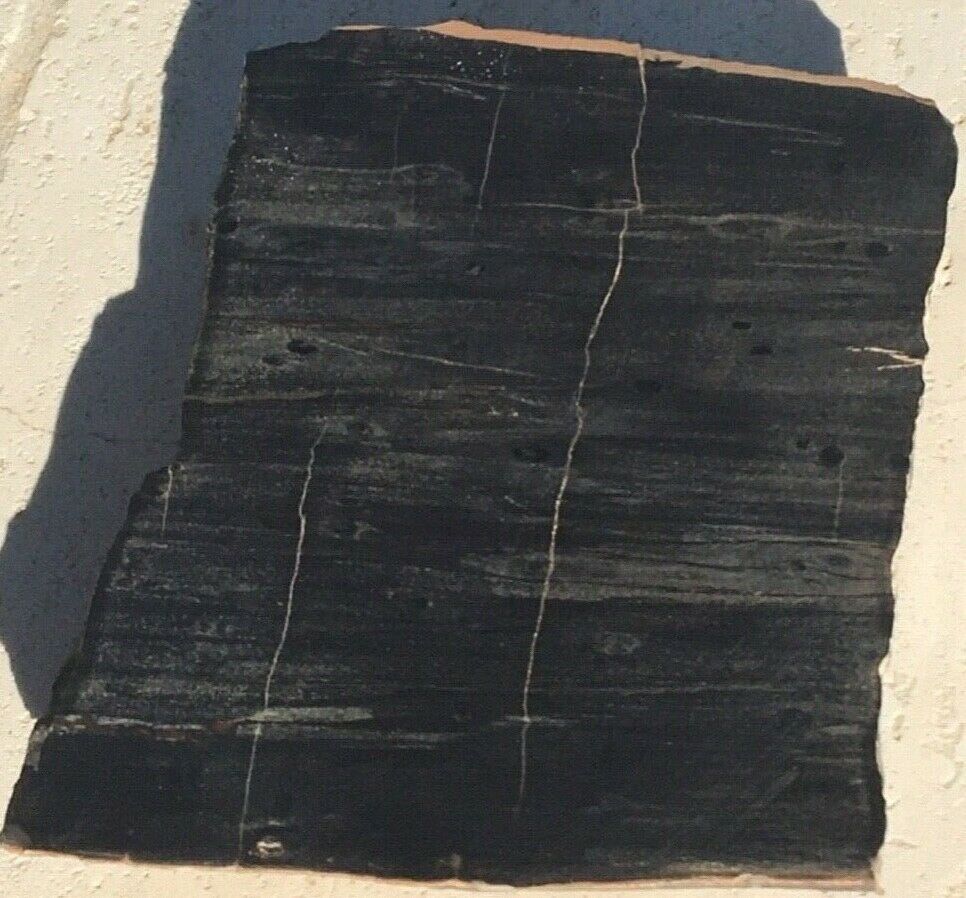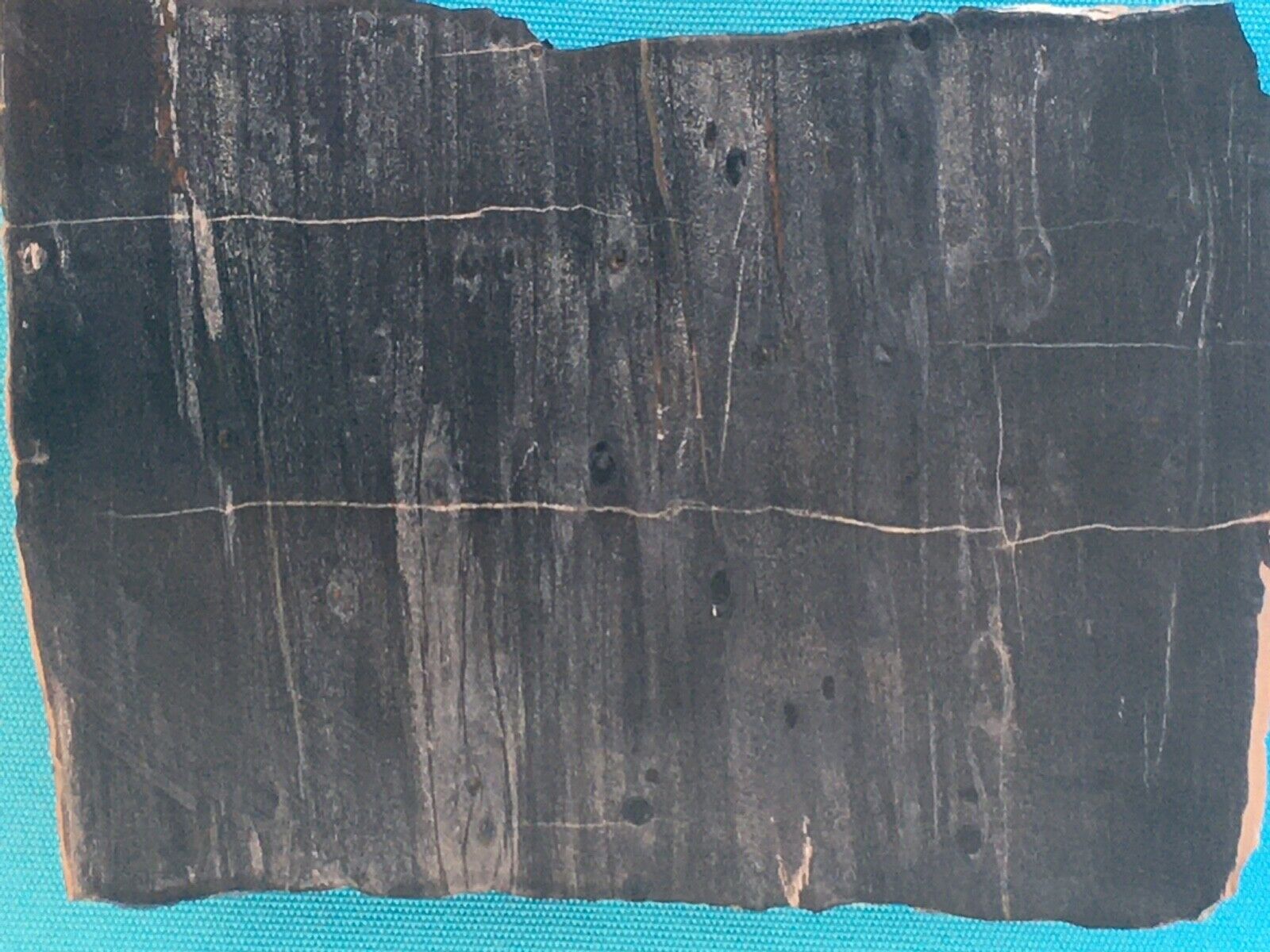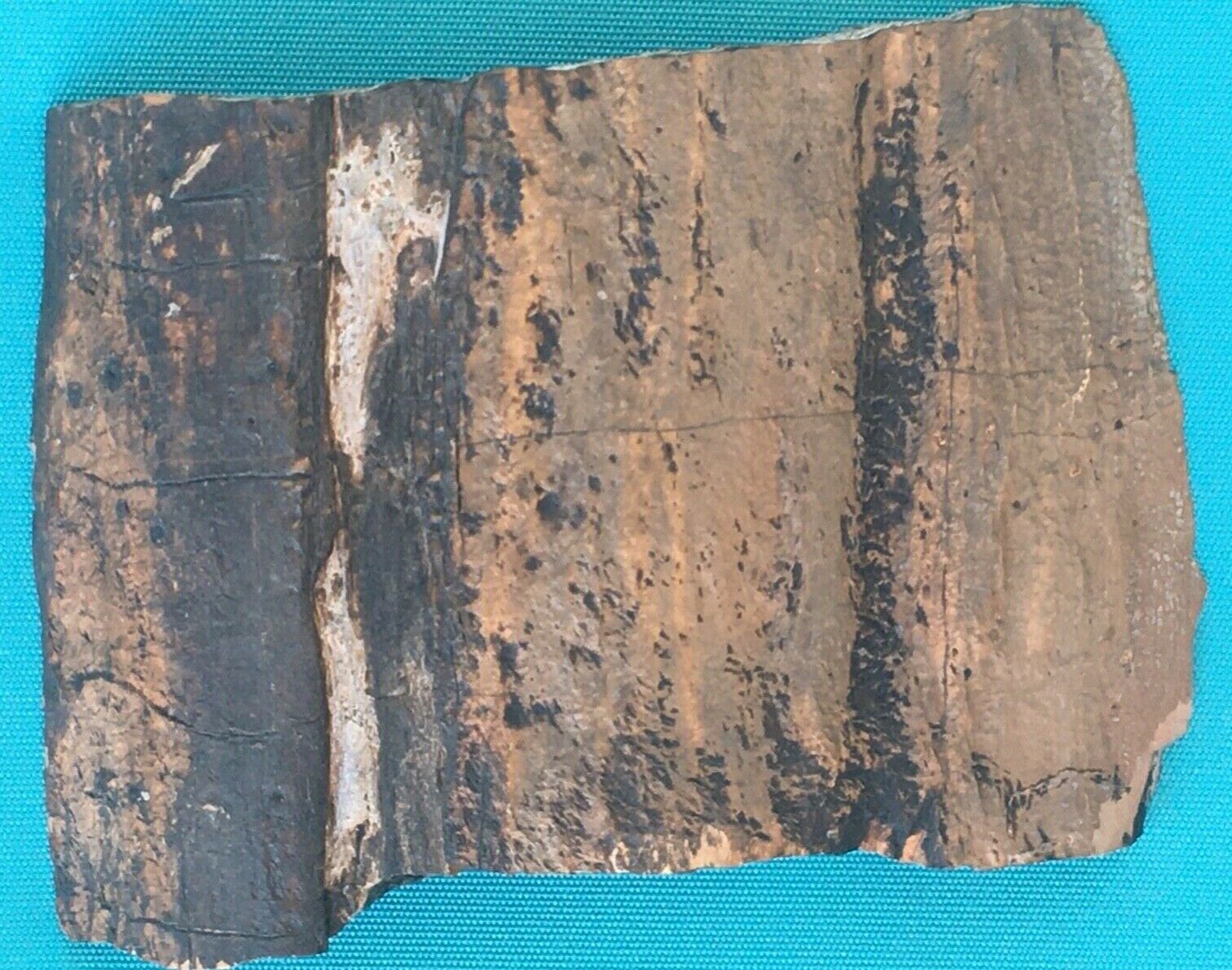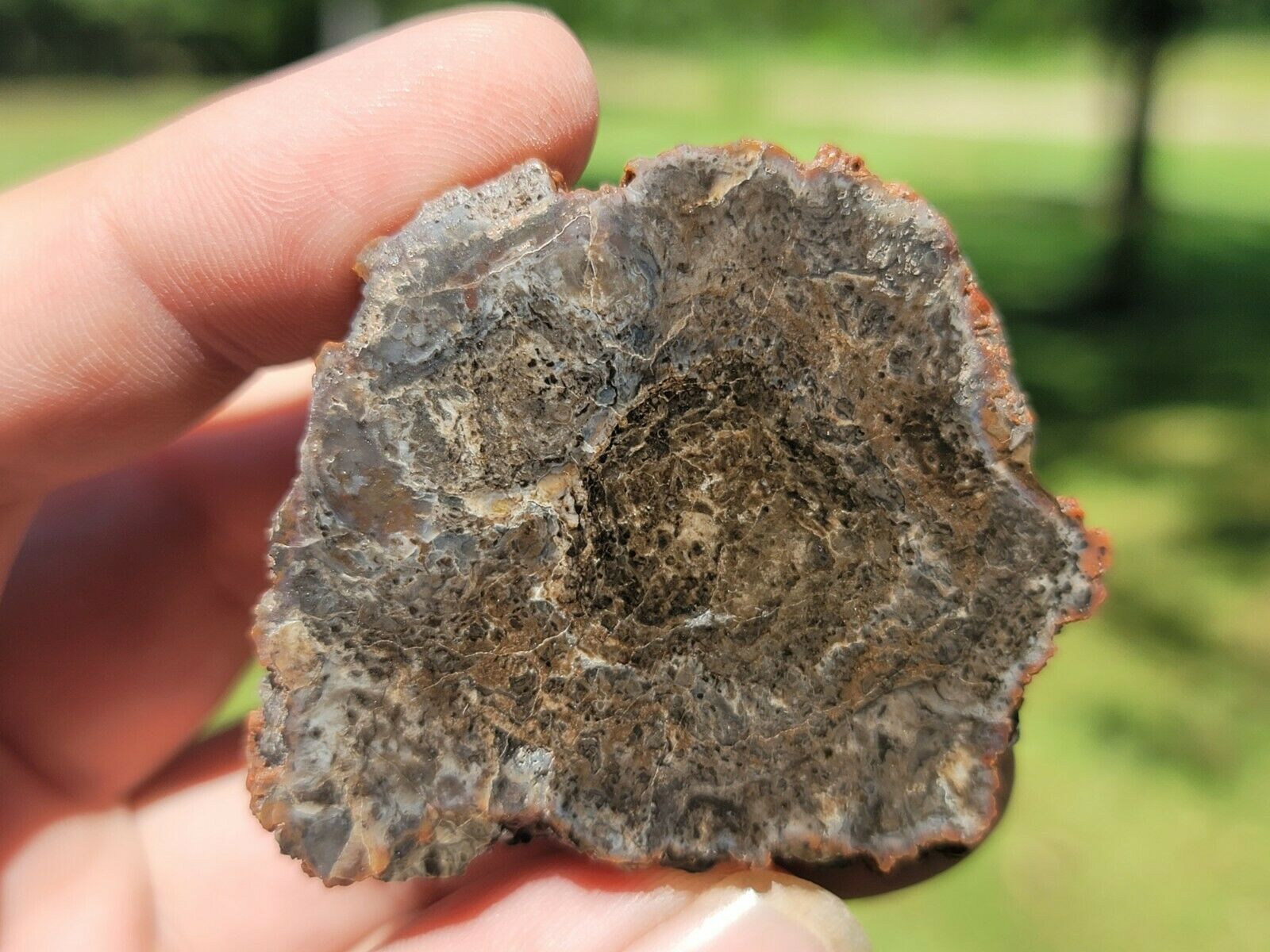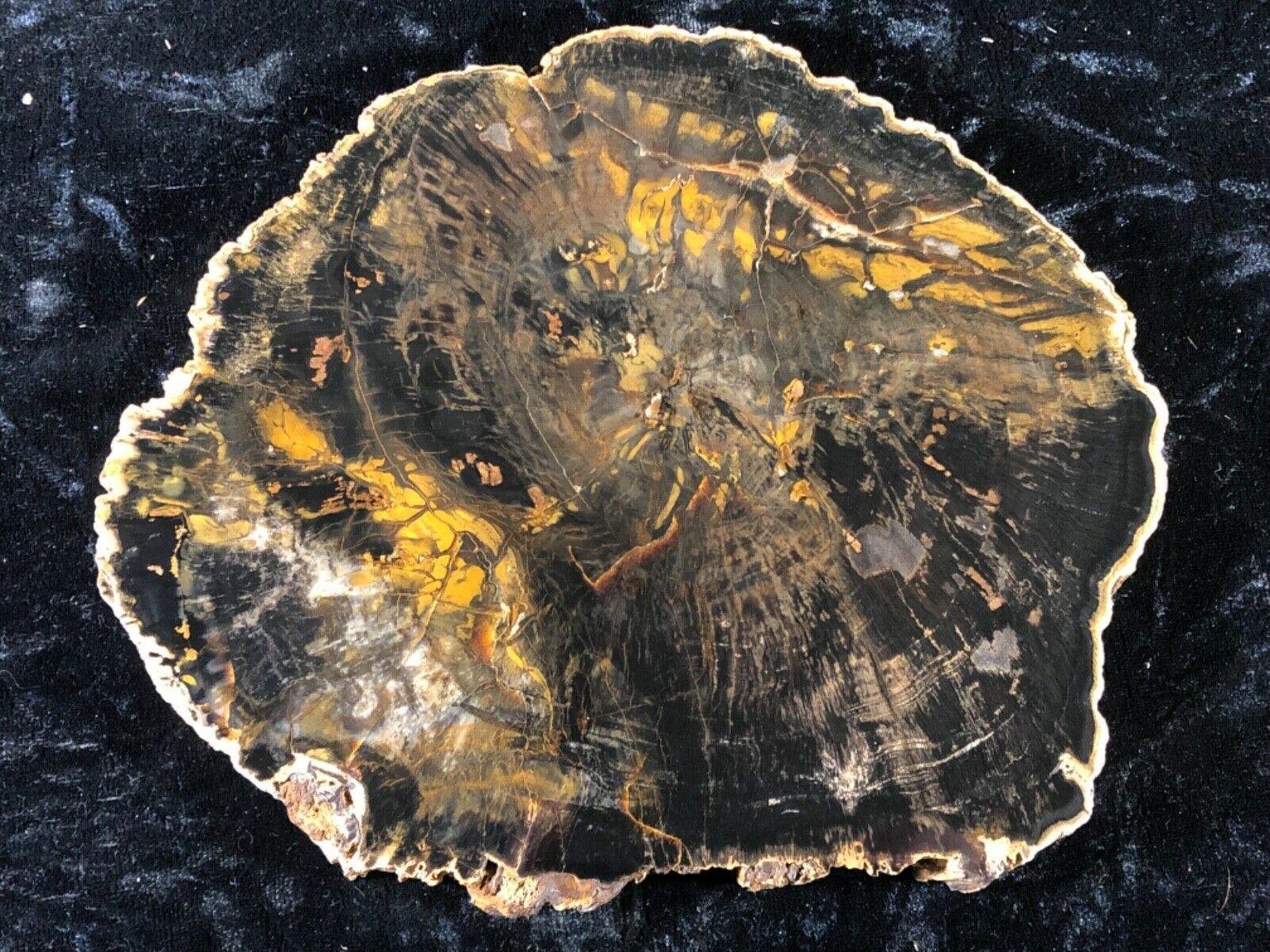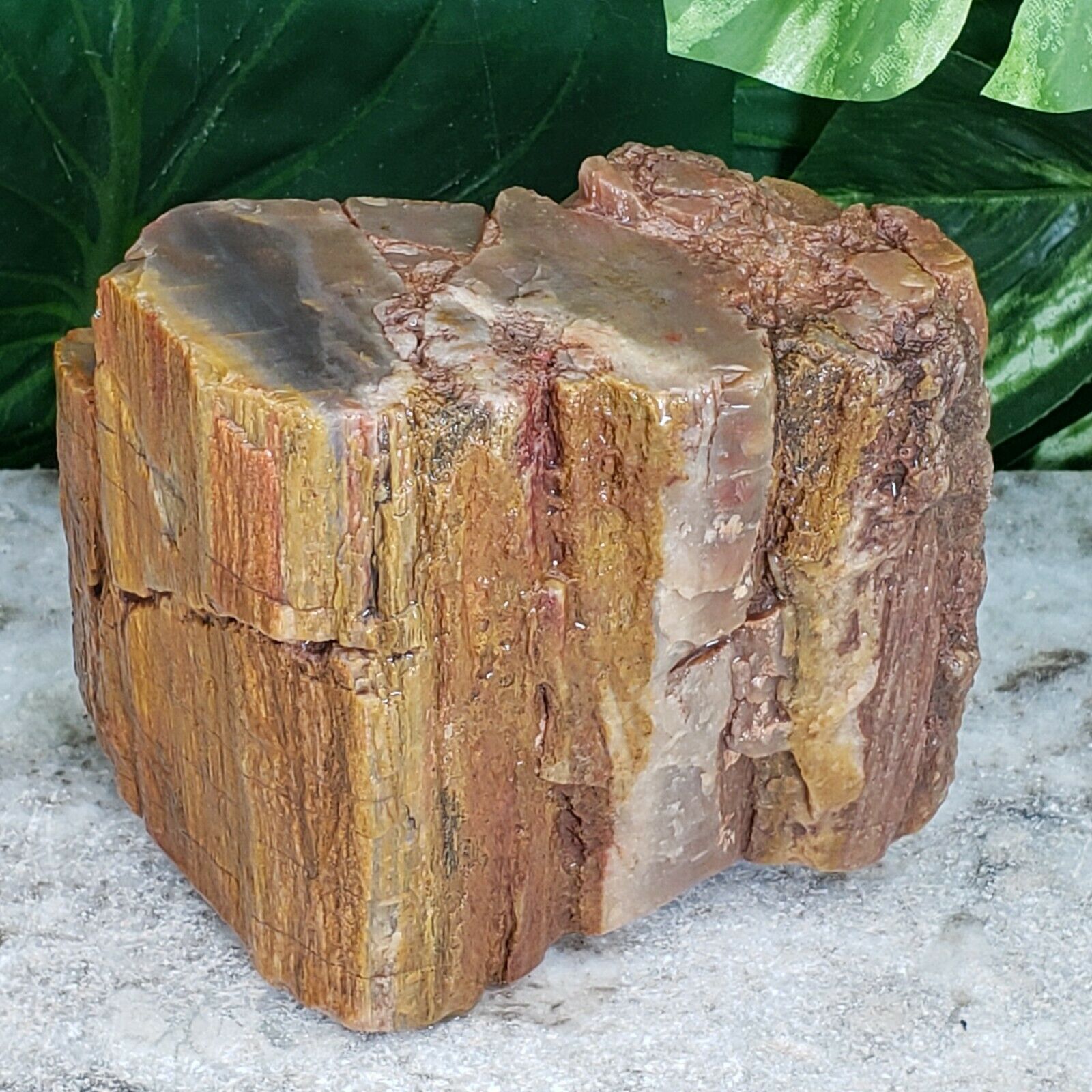-40%
533g Unusual Black Polished Petrified Wood Slice with Metal Stand for Display!
$ 25.87
- Description
- Size Guide
Description
533g Unusual Black Polished Petrified Wood Slice with Metal Stand for Display!Measures approximately 5.25 x 3.75 x 1" (at thickest) and .5" (at thinnest) part of slice.
Petrified wood was formed 225 million years ago during
the triassic period
and is 4 times as hard as granite and very colorful, due to the effect of impurities such as iron, manganese, copper and lithium present in the wood during the fossilizing process. With its magnificent colors, this specimen is a perfect example resulting from fossilization.
Information on Petrified Wood:
Petrified wood
(from the Latin root
petro
meaning 'rock' or 'stone'; literally 'wood turned into stone') is the name given to a special type of
fossilized
remains of
terrestrial vegetation
. Petrifaction is the result of a
tree
or tree-like plants having been replaced by stone via a mineralization process that often includes
permineralization
and replacement. The
organic materials
making up cell walls have been replicated with
minerals
(mostly
silica
in the form of
opal
,
chalcedony
, or
quartz
). In some instances, the original structure of the stem tissue may be partially retained. Unlike other plant fossils, which are typically impressions or compressions, petrified wood is a three-dimensional representation of the original organic material.
The
petrifaction
process occurs underground, when wood becomes buried in water-saturated
sediment
or
volcanic ash
. The presence of water reduces the availability of
oxygen
which inhibits aerobic decomposition by bacteria and fungi. Mineral-laden water flowing through the sediments may lead to permineralization, which occurs when minerals precipitate out of solution filling the interiors of cells and other empty spaces. During replacement, the plant's
cell
walls act as a template for mineralization. There needs to be a balance between the decay of
cellulose
and
lignin
and mineral templating for cellular detail to be preserved with fidelity. Most of the organic matter often
decomposes
, however some of the lignin may remain. Silica in the form of opal-A, can encrust and permeate wood relatively quickly in hot spring environments. However, petrified wood is most commonly associated with trees that were buried in fine grained sediments of deltas and floodplains or volcanic
lahars
and ash beds.
